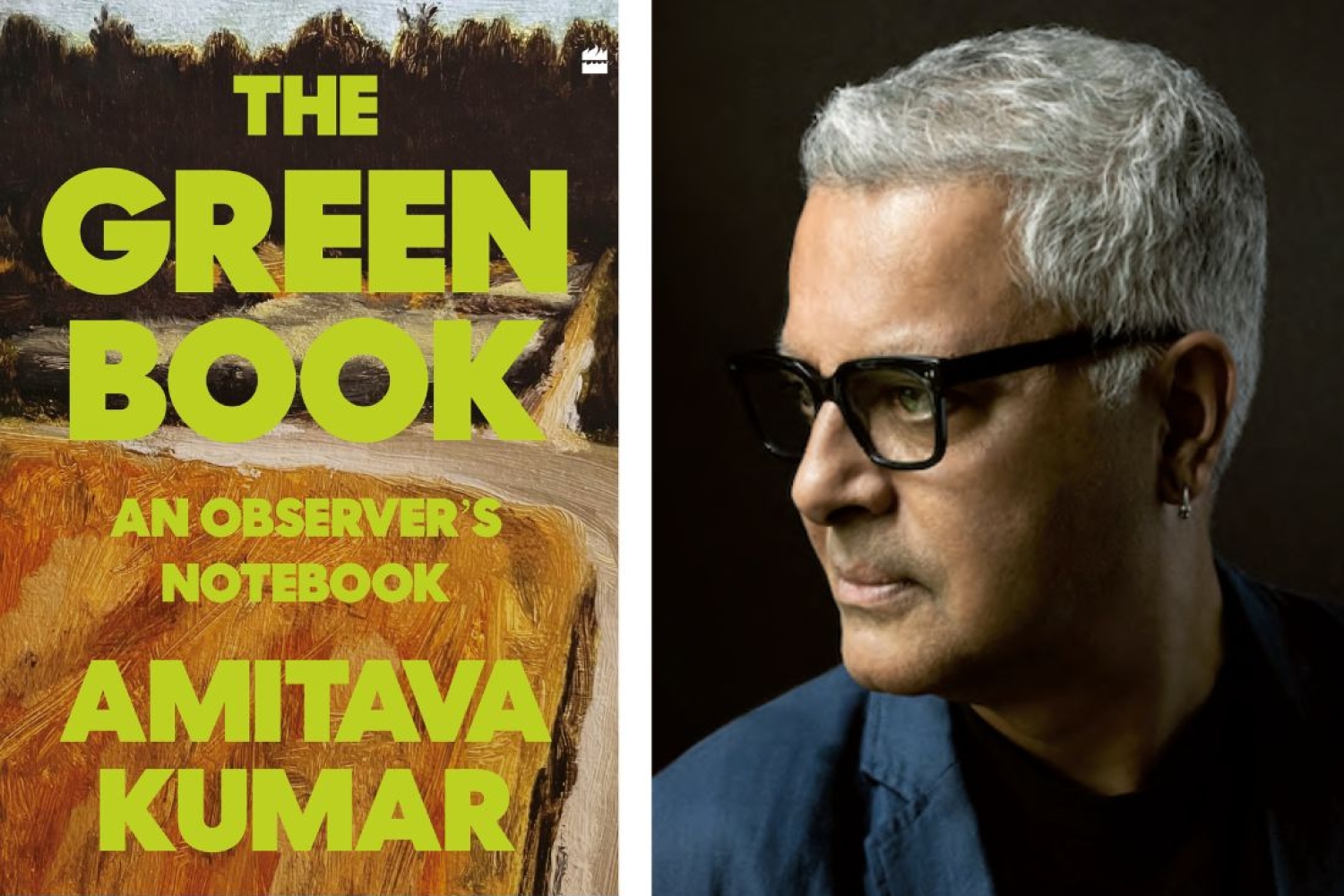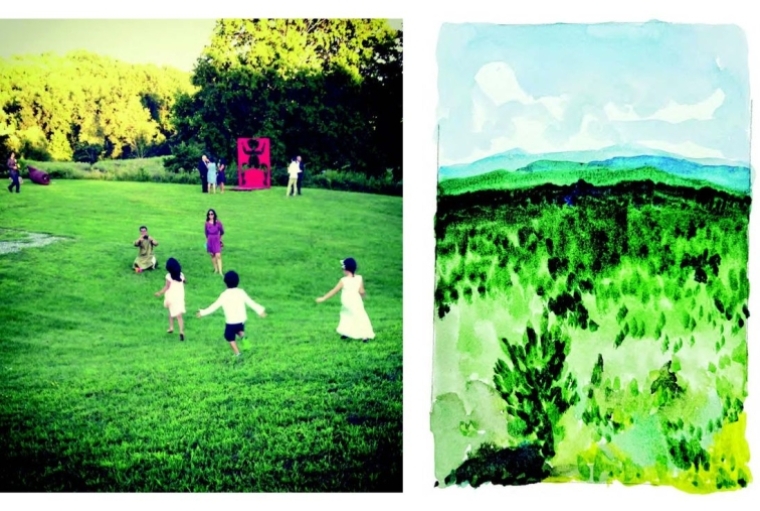

The picture that you see here was taken a decade ago by the writer Hua Hsu at a wedding in upstate New York. I stand now at the cusp of old age, the twilight years, my gaze turned toward the gathering dark that lyrical writers call the gloaming. But for a brief moment, I want to consider not the immediate future but the more distant and irrecoverable past.
I have in my files a drawing made for my twenty-first birthday by a girl I was in love with. By being in love I don’t mean that we had ever kissed or even held hands; we would run into each other at college in Delhi and make small talk for a minute or two but then we often wrote each other long, intense letters. A few times I visited her at home for tea, and on one memorable occasion, she came to my home for lunch and met my mother. On a visit to Patna a few years ago, I found my decades-old journals in my parents’ home. Secreted in their pages were all the letters from her that I had saved.
Her drawing was part of a letter I must have received in 1984. I never drew her, I wouldn’t have known how to. On the campus of my college, where I seldom attended class, my eyes always searched for her. I don’t know why our conversations were so brief, even abrupt; I was always nervous when I saw her and my mouth would go dry. I was elated when I received her letters. Often I waited for them in vain, and I experienced an emptiness, a quiet nullity of being, when days passed without letters. I thought of all this when some time ago I read the following line by Oscar Wilde: ‘What was youth at best? A green, an unripe time, a time of shallow moods and sickly thoughts.’

It is dusk, or call it middle age, the grass is the colour of forever, and I wait for the children to never stop running toward me.
When I came across those words from Wilde, I was working on the novel that became My Beloved Life. One of my two protagonists is a young woman named Jugnu who is studying journalism at a college in Delhi. She exchanges letters with a fellow student named Jatin. The letters that Jatin writes aren’t conventional letters: they only have a line or two quoted from a book he is reading. He doesn’t mention the author or the title of the book the quote has been borrowed from. This makes Jugnu feel cheated; she complains, because she wants to further her education. These details in the novel are not autobiographical.
In the novel, I put these words which feel true even now: ‘When passing a cup of coffee, or when exchanging books or even letters, my fingers brushed against Jatin’s hands. But there was no other intimacy.’ Jatin believes that his true calling is to be a poet but his poems are full of vague abstractions.
When I found the letters in my old diaries, I also discovered a rejection letter that had been sent to me by an editor. I put that letter in my novel, hardly changed, as an accidental discovery by Jugnu. She reads it with a sense of guilt and embarrassment, and then wonders if Jatin had wanted her to find it and offer him sympathy.
Opposite:
Green mountains,
Vermont, 2023
Date 04.12.2024